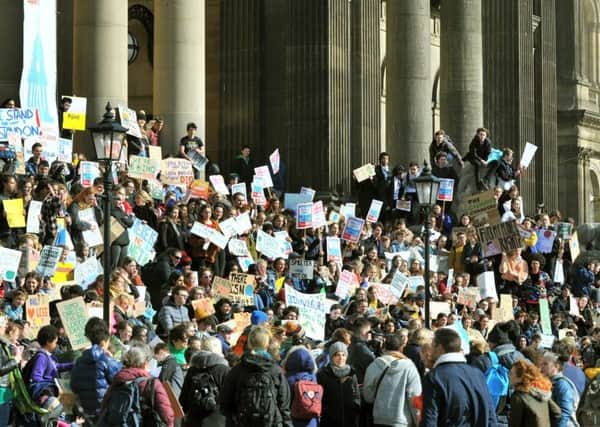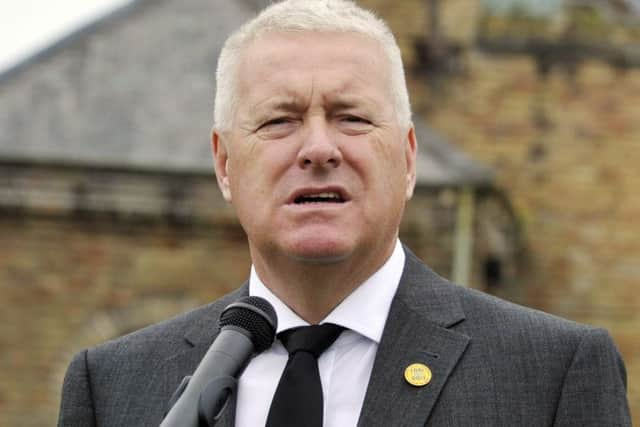Why climate change isn’t just a middle-class concern says former NUM president – Ian Lavery


Whole communities depended on the economic value added to them by the extraction of black gold from the bowels of the earth, and a huge proportion of them owe their very existence to the industry. That’s as true here in Yorkshire as it is across other regions that were home to significant coalfield communities.
Hundreds of thousands of miners were maimed, injured or died in the pursuit of coal and many in communities, like many here in Yorkshire and the one I represent in the North East, live with the consequences of their past employment every single day. As we look to the future, we should never forget the sacrifices made by the working men and women of Britain simply to survive as the capitalist classes grew fat on profit.
Advertisement
Hide AdAdvertisement
Hide AdBut the industry in Yorkshire is no more, decimated by Margaret Thatcher and her government in the pursuit of remaking society in their own ideological image. As it has been across the rest of the UK. Their destruction left behind communities indelibly scarred by the inevitable economic consequences of losing hundreds and thousands of well-paid jobs.


In 2019, we are on the verge of an historic call to action on climate change. We understand that this poses an existential threat to our way of life and our world. Over the past decade we have seen a huge increase in occurrences of extreme weather, flooding and wildfires are now common sights on news bulletins.
In my own constituency the town of Morpeth found itself subject to destruction at the hands of extreme weather in 2008 and again in 2012. Here in Yorkshire, Marsden Moor and Ilkley Moor have witnessed devastating wildfires while communities across the region have suffered from extreme flooding over the last 20 years – not least in the Calder Valley, Leeds, York, the Aire Valley and Sheffield among those worst-affected.
While renowned scientists have consistently warned of the threat to our world, a combination of Sir David Attenborough’s programming, striking school children and, more lately, Extinction Rebellion have propelled the issue to national prominence.
Advertisement
Hide AdAdvertisement
Hide AdI fully support the Labour Party pushing the Government to declare a climate emergency here in the UK. Hopefully this will spark a wave of action in parliaments and governments around the world.
However, we can only succeed if we get the buy-in of all communities in the UK. Those struggling to feed their families have more pressing concerns than the fate of the polar bears, but climate change isn’t just a middle-class concern.
It’s something that will detrimentally affect working-class communities. Its children living in inner cities who have to breathe in dirty air, it’s those who can least afford to protect their homes against flooding and who will face rising food prices as crops fail.
It is these communities who are least to blame for climate change, yet they are the ones who will have to pay the price.
Advertisement
Hide AdAdvertisement
Hide AdFrom the very first second, we need to ensure the impact on the many is embedded in our responses to climate change. This will be a priority for Labour’s Green Industrial Revolution.
Moving toward renewable energy shouldn’t destroy communities like Thatcher’s closure of the deep-mined coal industry. Trade unions will play a central part in working with Labour to ensure a just transition for existing energy workers. This will mean training and skills development and access to jobs with comparable terms and conditions and fully funded and voluntary relocation to jobs in other parts of the country. Tackling climate change won’t pit some workers against others, it will be the thing that unites them.
Just as the first Industrial Revolution gave us the coal mines, the Green Industrial Revolution will make the UK a global leader in renewable energy. It will bring well-paid, unionised jobs to towns left decimated by de-industrialisation. Climate change is happening now, and we can’t wait to be in Government to make these plans happen. There is so much we can do to save our planet and increase the standard of living for the many. We must not miss this opportunity.
Ian Lavery is chair of the Labour Party, the MP for Wansbeck and a former president of the NUM.